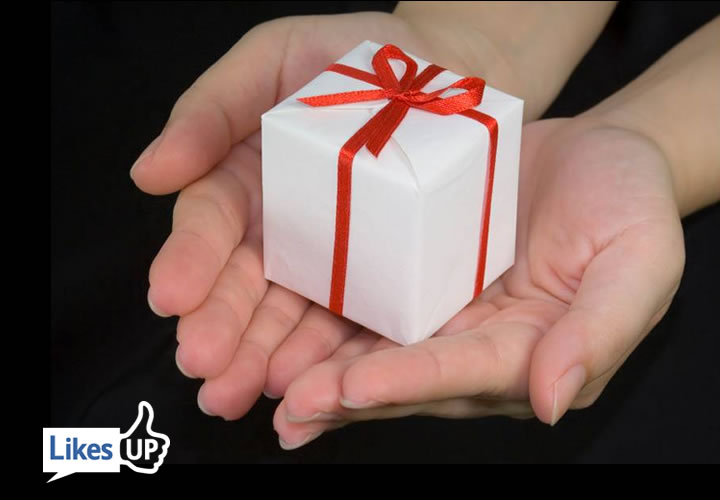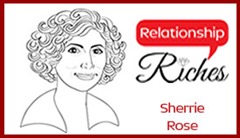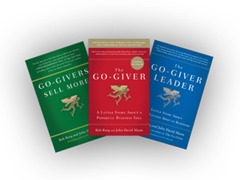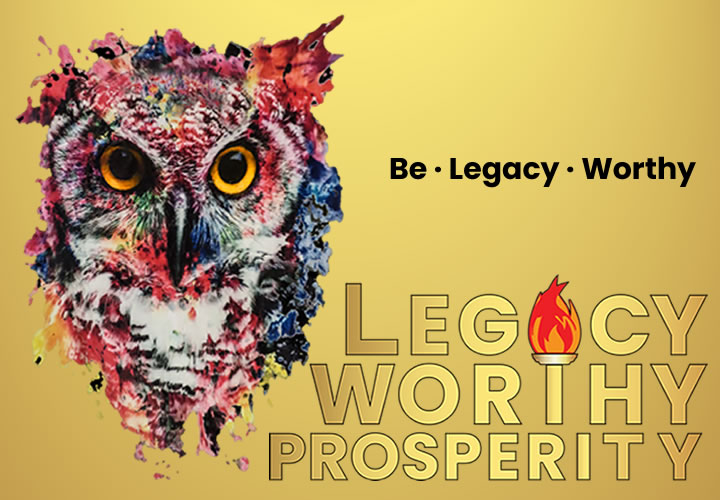The Secret to Giving Away Stuff For "Free"

The best marketers and advertisers concentrate on what they have to give. Words sell. Of the 12 most powerful words in advertising, FREE, is extremely powerful (and so is sex!). Read on to learn about giving things away for free.
“Most people just laugh when they hear that the secret to success is giving. . . . Then again, most people are nowhere near as successful as they wish they were.” ~Bob Burg
The term “go-giver” has become shorthand for a defining set of values embraced by hundreds of thousands of people around the world.
Joe is a true go-getter, though sometimes he feels as if the harder and faster he works, the further away his goals seem to be. Desperate to land a key sale at the end of a bad quarter, he seeks advice from the enigmatic Pindar, a legendary consultant referred to by his many devotees simply as the Chairman.
Over the next week, Pindar introduces Joe to a series of “go-givers”: a restaurateur, a CEO, a financial adviser, a real estate broker, and the “Connector” who brought them all together. Pindar’s friends teach Joe the Five Laws of Stratospheric Success and help him open himself up to the power of giving.
Of course, the Go-Giver follows the simple principles of Relationship Riches… and the real currency IS Relationship Riches. Joe learns that changing his focus from getting to giving—putting others’ interests first and continually adding value to their lives—ultimately leads to unexpected returns. Today this timeless story The Go-Giver classic continues to help its readers find fulfillment and greater success in business, in their personal lives and in their communities.
In earlier articles on LikesUp.com, we describe the powerful rule of reciprocity in Robert Cialdini’s book, Influence. Those blog posts describe the reciprocation rule which essentially states that if someone gives something to us, we feel obligated to repay that debt. It is one of the most influential dynamics of all the human behavioral dynamics.
There are several characteristics of this rule, which make it phenomenally compelling – “We are human because our ancestors learned to share their food and their skills in an honored network of obligation,” By obligating the recipient to an act of future repayment, the rule of reciprocation allows one person to give something to another with the confidence that it is not being lost. The mutually beneficial exchanges of our ancestors evolved into a sound interdependence among humans. As a result, people were (and are) trained from an early age to comply with the rule of reciprocity.
The rule of reciprocity is so powerful because of how we are compelled to overcome our feelings of dislike or suspicion for the person who gives us a gift. Cialdini discusses Hare Krishna followers as an example (pushing the “gift” of the flower in one’s hand and soliciting donations in return). Gavin deBecker cites this phenomenon in his book, The Gift of Fear (1999) in which people ignore their own discomfort in order to “repay” another’s act of kindness (again, even if unsolicited).
Are we powerless to the strength giving and of the rule of reciprocity? By knowingly engaging in the exchange of reciprocity, you can minimize the potential effects of exploitation. You have the ability to effectively discern and to recognize that the requester who invokes the giving. You don’t need to reject the services, favors, or kindnesses of others, but evaluate intention.
We have seen a switch in the way people consume media – it is changing very quickly. Laptops, tablets, and smartphones keep us constantly connected to the interwebs. For savvy marketers this represents a huge opportunity to give that brings to life the old proverb “Give and you shall receive.”
The only problem: the old methods are no longer working. New media demands new advertising. On websites, apps, webinars there are offers for free gifts. Facebook is the single most effective platform for marketing in the Internet era and it’s so important to promote your business in a way that’s congruent with the norms of social media. When you pinpoint your market, master your message, create a lead magnet (or lead candy as I like to call it), and build a mechanism that both collects and helps you retain and develop those relationships you will see that the secret is in the giving.
So I would like to give you a few gifts. That is the lead candy template cheat sheet for your Facebook ads. Click here or on the image below.
In The Webinar Way book, we also describe giving in the promotion of your webinar, in the opening of your webinar and even after your webinar. If you would like free webinar gifts go to WebinarCoach.com and click “free stuff” on the menu.
As Bob Burg says, it is all about giving exceptional value. You can also get the free gift on SherrieRose.com, “What’s The Number One Skill You Should Master?” Click here.
Enjoy!
Sherrie Rose

#LikesUP for Giving!





